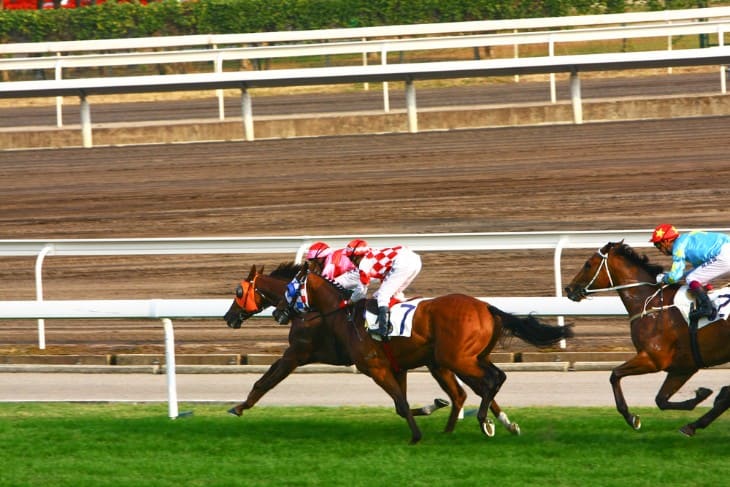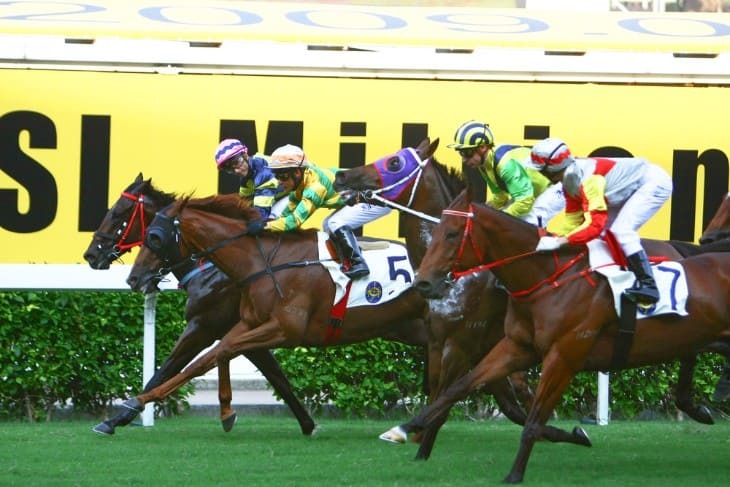Horse racing in the UK boasts a rich and storied heritage, captivating the hearts of enthusiasts for centuries. Within this prestigious sport lie intense rivalries that have left an indelible mark on its history. Revisiting these iconic rivalries takes us back to a time when thrilling showdowns between horses, jockeys, and trainers created moments of unparalleled excitement and drama on the tracks.
Setting the Stage: A Glance at the Storied Heritage of UK Horse Racing
At the heart of British culture, horse racing has been a cherished tradition dating back to the medieval era. From the racecourses of Epsom Downs to the hallowed grounds of Ascot, these venues became the epicenters of sporting passion and pageantry. The roots of UK horse racing can be traced back to the 17th century, with the establishment of some of the world's most esteemed races, such as the St. Leger, the Derby, and the Royal Ascot.
The allure of horse racing transcended social classes, bringing together the nobility and common folk alike. It is amidst this historical tapestry that some of the most celebrated rivalries were born, forever etching the names of legendary racehorses into the annals of sporting history.

Legendary Steeds: Unraveling the Rivalry of Iconic Racehorses
Within the esteemed world of horse racing, there were those exceptional thoroughbreds whose feats on the turf elevated them to the status of sporting legends. One such rivalry that echoes through time is that of Arkle and Mill House, two giants of the steeplechasing world in the 1960s.
Arkle, the seemingly invincible Irish-bred racehorse, earned adoration from racing fans for his unmatched jumping ability and extraordinary speed. Mill House, his formidable British counterpart, was equally gifted and possessed a resolute determination to challenge Arkle's dominance.
Their fierce duels at racecourses like Cheltenham and Kempton Park electrified spectators, as these two equine titans pushed each other to the limits in a series of epic contests. The rivalry between Arkle and Mill House transcended national borders, captivating audiences on both sides of the Irish Sea and setting new standards of excellence in steeplechase racing.
[promotion:240]
Duel of the Titans: Intense Rivalries Between Top Jockeys
While the racehorses stole the limelight on the tracks, the jockeys piloting them were no less crucial in shaping the outcomes of these historic battles. The rivalry between jockeys Lester Piggott and Willie Carson is etched in the collective memory of UK horse racing aficionados.
Lester Piggott, with his remarkable career spanning over four decades, was known for his impeccable riding skills and tactical brilliance. His steely determination on the saddle earned him the nickname "The Long Fellow," and he held a firm grip on the UK racing scene during the 1950s and 1960s. In contrast, Willie Carson, the "Pocket Rocket," showcased a unique flair for precision riding and extraordinary versatility throughout his illustrious career.
The duo's relentless pursuit of victory saw them cross paths time and again on the most prestigious racecourses. Be it the Epsom Derby, the St. Leger, or the 2,000 Guineas, the fierce rivalry between Piggott and Carson injected a heady dose of excitement into each race they competed in. Their tactical battles and photo-finishes became the stuff of legends, captivating spectators and making headlines across the nation.
In addition to Piggott and Carson, other jockeys like Frankie Dettori, Pat Eddery, and Richard Dunwoody also etched their names into the pantheon of UK horse racing history through unforgettable rivalries that pushed the boundaries of skill and endurance.
Masterful Minds: Fierce Battles Among Renowned Trainers
Beyond the celebrated racehorses and jockeys, trainers too played a pivotal role in the development of iconic rivalries. The clash between trainers Vincent O'Brien and Henry Cecil stands as a testament to the significance of their strategic acumen in the world of horse racing.
Vincent O'Brien, the Irish mastermind, was renowned for his exceptional horsemanship and training abilities. His meticulous preparation of horses and astute race planning made him a force to be reckoned with. Henry Cecil, on the other hand, was a trailblazer in his own right, excelling at nurturing the potential of individual horses and guiding them to greatness.
Their rivalry reached its zenith in the classic duels of their star racehorses - Nijinsky and Roberto, trained by O'Brien, and Cecil's legendary filly, Oh So Sharp. The Epsom Derby of 1970 witnessed Nijinsky and Roberto go head-to-head in a memorable clash, leaving spectators in awe of the training genius behind each horse.
Similarly, the epic rivalry between trainers Sir Michael Stoute and Aidan O'Brien brought contemporary flair to the historical lineage of UK horse racing. Both trainers have molded some of the most exceptional racehorses of their time, and their strategic battles on the turf have added a modern chapter to the sport's legacy.
A Clash of Egos: Behind-the-Scenes Drama and Controversies
Behind the glamour and glory of UK horse racing rivalries lies a world of egos, ambitions, and rivalries that extend beyond the racetrack. The intense competition among owners, breeders, and even racing stables has fueled bitter feuds and controversies that have added a layer of intrigue to the sport.
Ownership battles over prized racehorses have been a recurrent theme throughout history. The fierce desire to own a potential champion has led to fierce bidding wars and legal disputes. The infamous rivalry between Robert Sangster and Sheikh Mohammed bin Rashid Al Maktoum, two prominent racehorse owners, captivated the racing world during the 1980s. Both were known for their lavish spending to secure the finest bloodlines and most promising horses, turning the sales rings into arenas of fierce rivalry.
Moreover, the competition between racing stables has been just as intense. Trainers often vie for top-quality racehorses and have been known to poach horses from each other's yards, sparking heated debates and allegations of foul play.
Intrigues and controversies are not limited to horse ownership; they extend to the jockeys and trainers as well. Instances of accusations of foul riding or unethical practices have further fueled the fire, making the racing world a cauldron of tension and drama.
[promotion:246]
Battlegrounds of History: Iconic Racecourses That Witnessed Epic Showdowns
The UK boasts a myriad of iconic racecourses that have borne witness to some of the most thrilling rivalries in horse racing history. Each track holds a unique charm and plays host to historic duels that are etched in the memories of racing enthusiasts.
Epsom Downs, home to the prestigious Epsom Derby, has been a witness to numerous clashes between thoroughbred greats. Its challenging track layout, with the infamous Tattenham Corner, demands both skill and stamina from horses and jockeys alike, setting the stage for heart-stopping finishes.
Another historic venue is Newmarket's Rowley Mile, renowned for the 2,000 Guineas and 1,000 Guineas races. This flat, straight course has seen many celebrated rivalries unfold, with its long, straight stretches providing ample opportunities for jockeys to display their tactical prowess.
Meanwhile, the Royal Ascot meeting, held at Ascot Racecourse, embodies elegance and regal splendor. It serves as a backdrop for some of the most high-profile rivalries, with the likes of the Gold Cup and Diamond Jubilee Stakes creating a spectacle of sporting excellence and aristocratic glamour.
The historic tracks of Cheltenham, Aintree, and Goodwood have also hosted legendary rivalries, where horses and jockeys etched their names into history through remarkable performances.
The Heart-Stopping Finishes: Recounting the Most Thrilling Races
The essence of a riveting rivalry lies in the heart-stopping finishes that leave spectators in awe. Throughout the annals of UK horse racing, there have been races that stand out for their sheer excitement and nail-biting conclusions.
One such race that still reverberates in the memories of racing enthusiasts is the Grand National of 1973. The showdown between Crisp and Red Rum at the Aintree Racecourse remains an unforgettable tale of determination and grit. Crisp, a gallant Australian-bred racehorse, set a blistering pace and looked set for victory until the legendary Red Rum, carrying more weight, mounted a late charge and snatched the win by a mere three-quarters of a length.
The 1981 Epsom Derby also holds a special place in the annals of thrilling races. The duel between the two exceptional colts, Shergar and Glint of Gold, enthralled the crowd. Shergar, the overwhelming favorite, showcased his raw power and elegant stride, leading the pack with an impressive margin. However, Glint of Gold, ridden by the tenacious Willie Carson, launched a remarkable comeback, closing the gap with every stride. The photo-finish revealed Shergar as the winner by a mere half-length, sealing his place as one of the greatest racehorses of all time.
Beyond the flat races, the Cheltenham Gold Cup has also delivered spine-tingling moments. The 1986 edition saw the remarkable rivalry between Dawn Run, the first and only mare to win the Gold Cup, and Wayward Lad, a brilliant chaser. The two matched strides in a neck-and-neck battle that had spectators gasping for breath. Dawn Run's indomitable spirit prevailed in the final strides, securing her place in history as one of the most remarkable racehorses ever.

Legacy and Impact: How Rivalries Shaped the Course of UK Horse Racing
The famous rivalries in UK horse racing have not only enthralled spectators but also left a profound impact on the sport itself. These historic duels have shaped the way we perceive racing excellence and have inspired future generations of racehorse owners, trainers, and jockeys.
Rivalries like that of Arkle and Mill House raised the bar for steeplechasing, leading to increased interest and investment in the sport. The competition between top jockeys, such as Lester Piggott and Willie Carson, fueled a wave of talent and professionalism among riders, as they aimed to emulate the prowess of their idols.
Trainer rivalries have also spurred innovation and strategic thinking in horse racing. The rivalry between Vincent O'Brien and Henry Cecil showcased the importance of training methods and personalized approaches for each horse, revolutionizing the training techniques used to this day.
Furthermore, the controversies and dramas that accompany these rivalries have brought attention to issues such as horse welfare and fair play, prompting regulatory changes and ensuring the sport's integrity.
Conclusion
As we bid farewell to this exploration of the captivating world of horse racing rivalries, we are reminded that the sport's true essence lies not just in the pursuit of victory but in the journey itself. The rivalries have bestowed upon us moments of joy, sorrow, and sheer excitement, leaving us with a profound appreciation for the magnificent creatures and talented individuals who have contributed to the tapestry of UK horse racing history.
[promotion:23]





